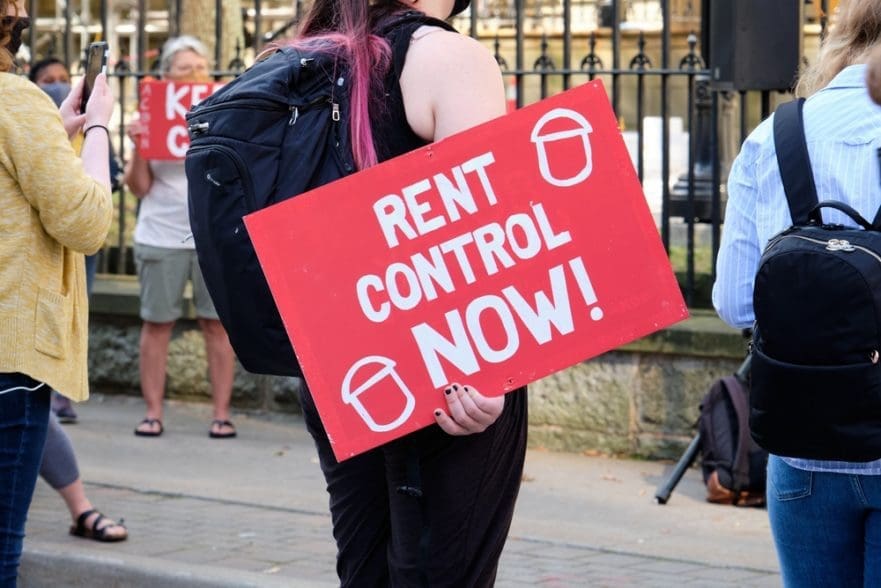There’s been a recent flurry of news stories about rents skyrocketing in cities throughout the nation. The Hill even reported that rent prices in February hit a “new high” in the 50 largest metropolitan areas, with a more than 17 percent increase from this time last year. The rent, in other words, is still too damn high. It further makes the case for the quick passage of rent control policies across the U.S.
It wasn’t long ago that top experts at the University of Southern California and UC Berkeley found that rent control was an essential tool to stabilize the housing affordability crisis.
“The housing crisis requires a range of strategies,” wrote USC professor Manuel Pastor, co-author of a highly regarded report titled Rent Matters. “Moderate rent regulation is a useful tool to be nested in broader strategy. It has few damaging effects that are often imagined, it can address economic pain, and it can promote housing stability.”
That critical tool is needed now more than ever. In addition to The Hill reporting about the worsening housing affordability crisis, media outlets in Central California, Nashville, New York City, Florida, Los Angeles, and Texas, among other places, have also put the spotlight on shockingly high rents.
The Hill reported that rent prices have spiked by 23.5 percent in Manhattan, nearly 19 percent in Seattle, 12.5 percent in Chicago, and nearly 22 percent in Nashville. Certain reporters and politicians blame a lack of housing supply for those skyrocketing rents – an outdated explanation that doesn’t take into consideration that corporate landlords are setting exorbitant prices in rental housing markets, with other predatory landlords following their lead and rent gouging tenants.
Politicians, Corporate YIMBYs, and Big Real Estate then push a destructive, pro-gentrification trickle-down housing agenda to build more luxury housing for a housing affordability crisis.
Which makes no sense. Middle- and working-class residents are bearing the brunt of the housing affordability crisis. Housing justice activists make the point that people need more affordable housing, not luxury.
(Read our important, free book: “Selling Off California: The Untold Story.”)
Activists and residents are now rising up throughout the U.S. to demand immediate help through rent control. Creating what’s becoming a much-needed nationwide rent control movement, activists in New Jersey, California, Florida, and Minnesota have urged politicians to pass rent regulations.
For example, in St. Paul and Minneapolis, Minnesota, where rising rents and gentrification have been devastating working-class communities, voters overwhelmingly passed rent control ballot measures in November. Minnesota activists are now fighting the real estate industry over the implementation of those victories – Big Real Estate, with the help of politicians, wants watered-down rent control policies.
Lives hang in the balance. A recent study shows that in cities where people spend more than 32 percent of their take-home pay on rent, a spike in homelessness will follow. At the same time, The Guardian found that in 20 U.S. urban areas, the number of unhoused residents who died on the streets rose a staggering 77 percent between 2016 and 2020. Rent control, in other words, will save lives.
Housing Is A Human Right continues to urge elected officials to implement the “3 Ps,” not trickle-down housing. That includes protecting tenants through rent control and other protections; preserving existing moderate- and low-income housing rather than allow developers to demolish it; and producing more new moderate- and low-income housing. The 3 Ps put people over profits.

